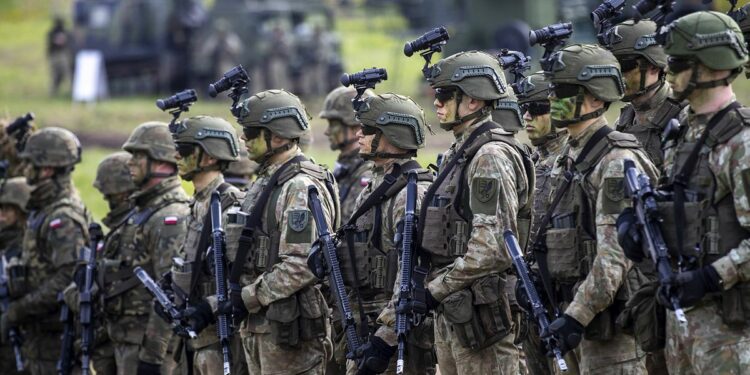His Polish counterpart, Wladislaw Kosiniak-Kamysz, promised to raise the issue at next week’s NATO summit in Washington.
According to Kosiniak-Kamysz, the protection of external borders with Russia and its allies remains a key task.
“The state of Poland, together with its allies, will do everything to protect the eastern border of the EU and NATO even better,” he said.
“This is our highest calling and this calling can be fulfilled not only by the nation-states but first of all by the EU, and together, we are calling for this, to internationalise the issue of this border”.
Threat from Russia
The latest remarks on border protection from both leaders come in the face of the threat posed by Russia’s war in Ukraine.
In the run-up to last week’s European Council, Estonian, Latvian, Lithuanian and Polish leaders signed a letter calling Brussels to become “both politically and financially” involved in building an estimated €2.5-billion wall along the bloc’s eastern border with Russia and Belarus to protect against military and hybrid threats.
In June, Poland, which lost a soldier in a knife attack across the border fence on 28 May, approved the €2.3bn border protection programme called the Eastern Shield.
“The situation in Lithuania and Poland is very similar. We will exchange our experiences and support the construction of the Lithuanian line of defence … as a line of defence of the NATO and EU’s eastern flank,” Kosiniak-Kamysz explained.
Lithuania’s Kasciunas outlined other measures that he said would be implemented soon to “hinder the advance of enemy forces”.
“Starting at the end of the summer, we will permanently fortify some parts of the border,” Kasciunas said.
They include anti-tank mines, remote mines, and a network of anti-tank ditches and collapsible bridges that can thwart an approaching enemy.
The first batches of acquired counter-mobility equipment will arrive later this month.
Source link : https://www.euronews.com/2024/07/04/poland-and-lithuania-seek-eu-and-nato-assistance-in-defending-their-borders
Author :
Publish date : 2024-07-04 07:00:00
Copyright for syndicated content belongs to the linked Source.


